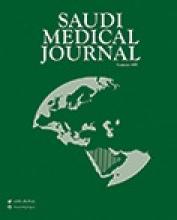Joint statement by WHO, UN, UNICEF, UNDP, UNESCO, UNAIDS, ITU, UN Global Pulse, and IFRC
23 September 2020 Statement - The Coronavirus disease (COVID-19) is the first pandemic in history in which technology and social media are being used on a massive scale to keep people safe, informed, productive and connected. At the same time, the technology we rely on to keep connected and informed is enabling and amplifying an infodemic that continues to undermine the global response and jeopardizes measures to control the pandemic.
An infodemic is an overabundance of information, both online and offline. It includes deliberate attempts to disseminate wrong information to undermine the public health response and advance alternative agendas of groups or individuals. Mis- and disinformation can be harmful to people’s physical and mental health; increase stigmatization; threaten precious health gains; and lead to poor observance of public health measures, thus reducing their effectiveness and endangering countries’ ability to stop the pandemic.
Misinformation costs lives. Without the appropriate trust and correct information, diagnostic tests go unused, immunization campaigns (or campaigns to promote effective vaccines) will not meet their targets, and the virus will continue to thrive.
Furthermore, disinformation is polarizing public debate on topics related to COVID-19; amplifying hate speech; heightening the risk of conflict, violence and human rights violations; and threatening long-terms prospects for advancing democracy, human rights and social cohesion.
In this context, the UN Secretary- General launched the United Nations Communications Response initiative to combat the spread of mis- and disinformation in April 2020. The UN also issued a Guidance Note on Addressing and Countering COVID-19 related Hate Speech (11 May 2020).
At the World Health Assembly in May 2020, WHO Member States passed Resolution WHA73.1 on the COVID-19 response. The Resolution recognizes that managing the infodemic is a critical part of controlling the COVID-19 pandemic: it calls on Member States to provide reliable COVID-19 content, take measures to counter mis- and disinformation and leverage digital technologies across the response. The Resolution also calls on international organizations to address mis- and disinformation in the digital sphere, work to prevent harmful cyber activities undermining the health response and support the provision of science-based data to the public.
The UN system and civil society organizations are using their collective expertise and knowledge to respond to the infodemic. At the same time, as the pandemic continues to create uncertainty and anxiety, there is an urgent need for stronger action to manage the infodemic, and for a coordinated approach among states, multi-lateral organizations, civil society and all other actors who have a clear role and responsibility in combatting mis- and disinformation.
We call on Member States to develop and implement action plans to manage the infodemic by promoting the timely dissemination of accurate information, based on science and evidence, to all communities, and in particular high-risk groups; and preventing the spread, and combating, mis- and disinformation while respecting freedom of expression.
We urge Member States to engage and listen to their communities as they develop their national action plans, and to empower communities to develop solutions and resilience against mis- and disinformation.
We further call on all other stakeholders - including the media and social media platforms through which mis- and disinformation are disseminated, researchers and technologists who can design and build effective strategies and tools to respond to the infodemic, civil society leaders and influencers - to collaborate with the UN system, with Member States and with each other, and to further strengthen their actions to disseminate accurate information and prevent the spread of mis- and disinformation.
- Copyright: © Saudi Medical Journal
This is an open-access article distributed under the terms of the Creative Commons Attribution-Noncommercial-Share Alike 3.0 Unported, which permits unrestricted use, distribution, and reproduction in any medium, provided the original work is properly cited.






